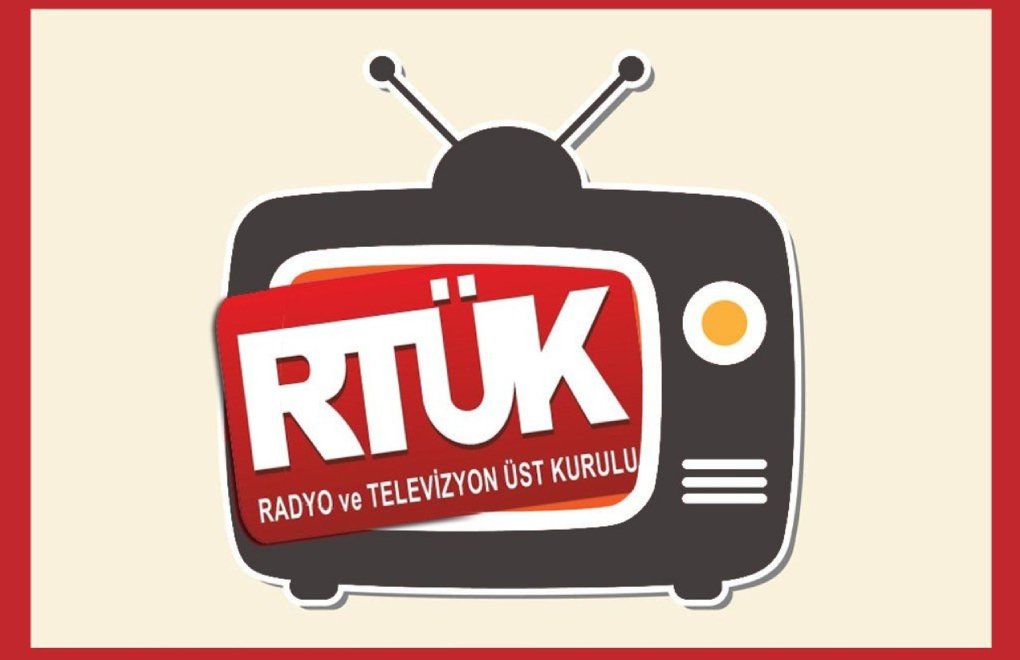REPORT BY COUNCIL OF EUROPE
‘RTÜK instrumentalized to pressure independent media in Turkey’

Click to read the article in Turkish
The partner organizations to the Council of Europe Platform to Promote the Protection of Journalism and Safety of Journalists have released their annual report titled "Wanted! Real action for media freedom in Europe", which also shares information about Turkey.
"In 2020, extraordinary damage was inflicted on the practice of free and independent journalism," the report has said regarding the general state of the profession in Europe, raising concerns that "a total of 201 media freedom alerts were published on the Platform in 2020."
"That is the highest annual total so far recorded and is almost 40 percent more than in 2019," the Platform has underlined further, adding that "a record number of alerts concerned physical attacks (52 reported cases), and harassment or intimidation (70 cases)."
The annual report of the platform has also raised concerns about the state of freedom of press and independent journalism in Turkey.
Some highlights about Turkey are as follows:
'Intimidation, harassment of journalists'
"The highest numbers of attacks on the physical integrity of journalists were reported in the Russian Federation, Italy and the United Kingdom, while France, Poland, Turkey and Ukraine saw a high number of cases of intimidation and harassment of journalists.
"For the second year in a row, a high number of physical attacks on journalists both from state and non-state actors were reported during protests and rallies. Assaults on journalists during protests were reported in France, Greece, Italy, Poland, the Russian Federation, Serbia, Spain, Turkey and the UK, in several cases in connection with the Covid-19 pandemic.
"Alerts show a high number of verbal attacks in some member states – North Macedonia, Serbia, Slovenia and Turkey – being made by representatives of public authorities, including by ministers and heads of government.
Investigations, prosecutions, convictions
"Criminal investigations, prosecutions and convictions against journalists by state actors were recorded in several countries, including Azerbaijan, the Russian Federation and Turkey.
"In Turkey and Azerbaijan, journalists were sentenced for a range of offences, including insulting a public official, violating quarantine rules, disclosing confidential information, violating bail requirements and membership of a terrorist organisation.
"In Azerbaijan, the Russian Federation and Turkey, numerous alerts documented instances where pre-trial custody was ordered, often in combination with questionable charges of theft, extortion, treason, espionage or terrorism. In many instances, such as in Turkey, indictments against journalists on these charges do not meet the necessary legal standard.
'Failure to enforce ECtHR rulings'
"The European Court [of Human Rights] plays a critical oversight role in guaranteeing the rights of journalists are upheld. However, the non-implementation of Court decisions in jurisdictions such as Turkey is a challenge to the European human rights framework.
"Political attacks on the independence of the Constitutional Court in Turkey is further compromising the rule of law in the country. Journalists face an ongoing campaign of judicial harassment, driven by the authorities' intention to thwart critical reporting, which is exacerbated by the context of a lack of prosecutorial and judicial independence and impartiality.
Concentration of media ownership
"in either state or private hands remains a severe or crippling impediment to media freedom and diversity in Azerbaijan, Bulgaria, Hungary, the Russian Federation, Serbia and Turkey, and a major obstacle to the operations and sustainability of independent media in many other European states.
"In Turkey, most of the mainstream media is under the control of government allies. The country's media regulators have been instrumentalised to pressure what remains of independent media in the country.
"The country's television and radio regulator, RTÜK, nominally independent but in practice controlled by the ruling coalition, stepped up its threats to independent broadcasters. Numerous stations faced fines and the threat of having their licence suspended over critical content.
"The report of the joint international press freedom to Turkey, which included several Platform partner organisations, highlighted captured media regulatory bodies as a top threat to press freedom.
'They decline to reply to alerts'
"Azerbaijan, the Russian Federation and Turkey have declined to reply to alerts and engage with the work of the Platform.
"The partners remind all the member states of their obligations under the European Convention on Human Rights. They urge all 47 member states to reply to the alerts that are communicated to them in good faith, and to undertake the necessary followup actions to remedy the suspected violations identified in the alerts." (HA/SD)




